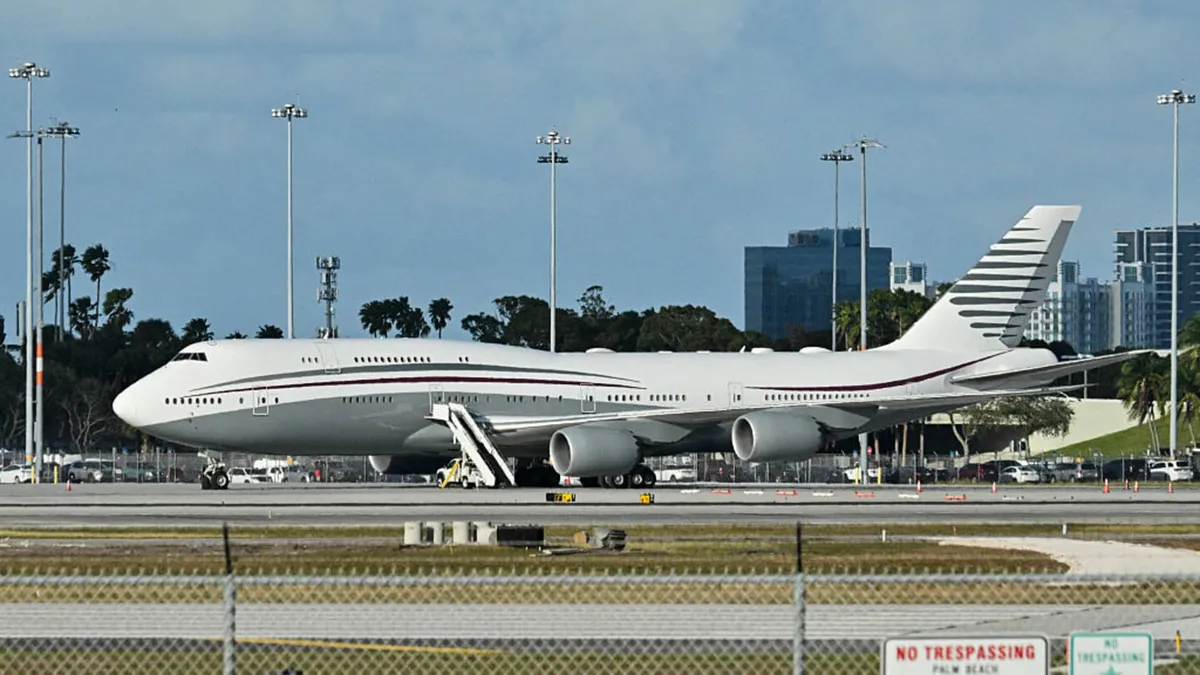
The Trump administration has officially accepted a luxurious Boeing 747 jet, a gift from the government of Qatar, as confirmed by the Pentagon on Wednesday. Defense Secretary Pete Hegseth received the aircraft, adhering to all federal regulations and guidelines, according to Pentagon spokesman Sean Parnell’s statement to CNBC.
The acceptance of this Boeing 747 jet signals the U.S. government's commitment to utilizing the aircraft, which President Donald Trump envisions as the new Air Force One. Parnell noted that the Department of Defense will ensure that the jet meets all necessary security measures and functional-mission requirements.
This announcement has intensified scrutiny surrounding the gift. Critics, including experts and Democratic lawmakers, have raised alarms, labeling the transaction as a potential bribery scandal. During a press briefing at the White House, Trump praised the gesture, stating that Qatar provided the jet to assist the U.S. government.
While the Boeing company has dedicated years to converting two 747s into the next Air Force Ones, the project has faced significant delays. The completion timeline suggests that these planes may not be operational before the conclusion of Trump’s second term. The president himself expressed frustration over the slow progress, indicating that he is exploring alternative options.
The 13-year-old Qatari jet, valued at approximately $400 million, presents a potential solution, although experts caution that converting it into a fully functional Air Force One could incur costs exceeding $1 billion and may take several years to finalize. This raises important questions about the fiscal responsibility of utilizing taxpayer money for such a transformation.
The acceptance of Qatar's gift has stirred significant backlash from various political factions. Many Democrats have denounced the arrangement as a form of bribery, while some Republicans have voiced concerns regarding potential national security implications associated with the gift. Senator Susan Collins (R-Maine) expressed her unease, stating that the transaction appears to be fraught with ethical and constitutional dilemmas.
Despite the criticism, President Trump has staunchly defended the decision to accept the jet, arguing that it would be foolish to turn down a complimentary aircraft. He emphasized that the gift is intended for the U.S. government and not for personal use.
In light of the ongoing developments, Boeing CEO Kelly Ortberg commented during a recent quarterly earnings call that the company is actively collaborating with the U.S. government to revise the program plan. The goal is to facilitate an earlier delivery of the new Air Force Ones while maintaining a strong focus on safety and quality.
This situation continues to unfold, leaving many questions regarding the implications of accepting a foreign gift and the broader effects on U.S. diplomatic relations.